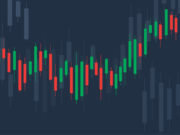Stocks fell last week as recession concerns intensified on Wall Street after a third consecutive Fed policy meeting resulted in a 0.75 percentage point rate hike. The major indices tumbled for the fifth week in the past six, with the Dow briefly dipping into bear market territory and closing at a new 2022 low. The Dow declined 4% for the week, and the Nasdaq contracted 5%, while the S&P 500 shed 4.7%. The benchmarks have all but erased gains from the summer rally. Since mid-August, the Nasdaq has tumbled more than 17%, the S&P 500 has fallen about 14%, and the Dow has dropped more than 13%.
On Wednesday, the U.S. Federal Reserve sought to keep inflation in check by approving a 75 basis point increase in its benchmark interest rate. The move lifted the rate to a range of 3.00% to 3.25%—a level last seen in 2008. Fed policymakers projected they would increase the rate by at least another 1.25% over the final two meetings of this year.
This will be the last week of the third quarter and of September – historically one of the worst months of the year for the stock market. Investors can expect several updates on the economic data front, including fresh readings of the Conference Board’s Consumer Confidence Index (CCI) and the University of Michigan’s Consumer Sentiment Index (MCSI). On Thursday, the Bureau of Economic Analysis (BEA) will release its final estimate for second-quarter GDP growth. On Friday, we’ll get an idea of how inflation is affecting consumer spending with the release of the Fed’s preferred inflation gauge, the Personal Consumption Expenditures (PCE) Price Index. We’ll also get updates on the cooling housing market with the release of August new home sales and the Case-Shiller Home Price Index reading for July.
This week’s watchlist highlights three stocks, including a company with a decades-long history as an indispensable household name that’s been quietly diversifying, expanding, and increasing its efficiency. Moreover, the stock is currently trading at a value compared to peers.
Beer, wine, and spirits distributor and manufacturer Constellation Brands (STZ) has over 100 brands, including Corona, Modelo, Svedka Vodka, Casa Noble Tequila, and Robert Mondavi. Its robust portfolio of high-quality brands also provides investors with exposure to the cannabis industry via its Canopy Growth (CGC) investment.
As the most prominent beer import company in the U.S., Constellation has the third highest market share (7.4%) of all major beer suppliers and generates 77% of its consolidated net sales through beer. The company has increased its production capacity four times over the last decade to meet demand and is currently focused on projects in Mexico. With $800 million invested in Mexican Beer Projects in 2022 and renewed support from the Mexican government (via a recent commitment to continued access to government-owned water sources), the expansion is likely to be highly successful.
Investors will be tuned in during the next earnings report, slated for October 5th, looking for results from management’s recent efforts to increase capital expenditure efficiency. The company eliminated class B common stock to enhance and simplify the capital structure and corporate governance, a decision expected to save $15-20 million in operating costs related to executive compensation and benefits this year.
Constellation topped Wall Street’s expectations for both earnings and revenue during its most recent release. The company reported $2.66 per share compared to analyst expectations of $2.51 per share. Revenue was up 16.6% from the same period last year, coming in at $2.36 billion, beating the consensus estimate of $2.16 billion. The company also recently disclosed a quarterly dividend of $0.80, representing a $3.20 annualized dividend and a 1.32%. The yield seems likely to grow with a conservative payout ratio of just 14%.
Equities research analysts predict that Constellation Brands will post $10.91 earnings per share for 2022. Its current price of $231.26 indicates a forward P/E of 22x STZ seems undervalued compared to competitors like The Duckhorn Portfolio, Inc. with a forward P/E of 30x and Brown-Forman Corporation with a forward P/E of 37x. Of 24 analysts offering recommendations for the stock, 19 rate it a Buy, and 5 rate it Hold. There are no Sell ratings. A median price target of $275 represents a 19% upside from the current price.
Solar power isn’t going anywhere anytime soon, so continued growth can be expected in the long term. Business Insights projects that the $163 billion global solar industry will reach $194.75 billion by 2027, exhibiting a CAGR of 6%. Our following recommendation is one of the top solar investments available.
Founded in 2001, Canadian Solar Inc. (CSIQ) is a leading manufacturer of solar photovoltaic modules and a provider of solar energy solutions. CSIQ has delivered around 52 G.W. of solar modules to thousands of customers in more than 150 countries through 2021, reaching approximately 13 million households. Canadian Solar derives roughly 47% of its revenue from Asia, 35% from the Americas, and 18% from Europe and everywhere else.
Canadian Solar is one of the most bankable companies in the solar and renewable energy industry, publicly listed on the NASDAQ since 2006. The company has the potential to advance in the upcoming months based on its continued business growth, favorable earnings, and revenue outlook.
Benefitting partially from renewed interest in renewable energy solutions, Canadian Solar posted revenue of $1.25 billion in Q1 of this year, up nearly 15% from the $1.09 billion in sales posted in the year-ago quarter. CSIQ is up 33% year to date, while the Nasdaq index is down 19% during the same period, making Canadian Solar intriguing on a relative level. Moreover, the share price remains 33% below its February 2021 peak, and now may be a good time to buy before the next leg up.
Some may be trying to call a bottom for the market, but an increasing number of Wall Street pros predict the rout will continue in the face of looming recession concerns. A reasonably priced, recession-resistant stock offering a reliable payout is Lockheed Martin (LMT).
It should be no surprise that the defense giant has outperformed the market this year. There are apparent geopolitical implications with the war in Ukraine. When Russia decided to invade its neighbor, U.S. and European forces rushed in to help Ukraine. It may be some time before LMT stock pops again, as it did at the onset of Russia’s invasion of Ukraine. However, its order books are likely to improve due to rising defense budgets in the U.S. and abroad. Along with Lockheed providing support to Ukrainian resistance fighters, the looming uncertainties in Russia could lead to massive economic problems and gaps in power in the former Soviet Union-controlled areas.
Given the recession-proof nature of defense contracting, Lockheed Martin should continue reporting positive results and rewarding shareholders through its quarterly 2.7% forward yield. In other words, even if the market dives again, LMT will likely stand firm. The company runs a P/E ratio of 24 times, below the sector median of 28.3 times. As well, LMT features excellent longer-term growth and profitability metrics.















